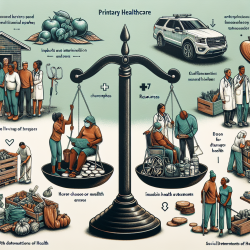Empowering Practitioners: Transforming Anaphylaxis Management through Education
Anaphylaxis is a serious and potentially life-threatening allergic reaction that requires prompt recognition and treatment. With its increasing prevalence, especially in westernized countries, it is crucial for healthcare practitioners to be well-versed in the management and education of patients and caregivers regarding anaphylaxis.
The research article "Anaphylaxis avoidance and management: educating patients and their caregivers" highlights the importance of educating patients at risk of anaphylaxis about its etiology, risk factors, and the critical role of epinephrine in treatment. The study emphasizes that healthcare providers play a vital role in preventing anaphylaxis through effective education and empowering patients to recognize and manage anaphylactic reactions early.
Key Takeaways for Practitioners
- Understanding Anaphylaxis: Anaphylaxis can occur rapidly and affect multiple organ systems. Recognizing the signs and symptoms, which can vary between individuals and episodes, is crucial for timely intervention.
- Education and Empowerment: Educating patients and caregivers about the triggers, avoidance strategies, and the correct use of epinephrine autoinjectors is essential. Providing clear, written instructions and demonstrating the use of autoinjectors can enhance patient confidence and preparedness.
- Risk Factor Identification: Identifying patients at higher risk, such as those with asthma or previous anaphylactic reactions, allows for tailored education and preventive strategies.
- Community Involvement: An integrated approach involving schools, camps, and community organizations can ensure broader awareness and preparedness, especially in environments where children are present.
Implementing Research Outcomes
Practitioners can enhance their skills by implementing the outcomes of this research. This includes staying updated on the latest guidelines for anaphylaxis management, participating in training sessions, and engaging in community outreach programs to raise awareness about anaphylaxis.
Further research is encouraged to explore innovative approaches to anaphylaxis management, such as allergen-specific therapies and new educational tools that can be integrated into patient care plans.
To read the original research paper, please follow this link: Anaphylaxis avoidance and management: educating patients and their caregivers.










